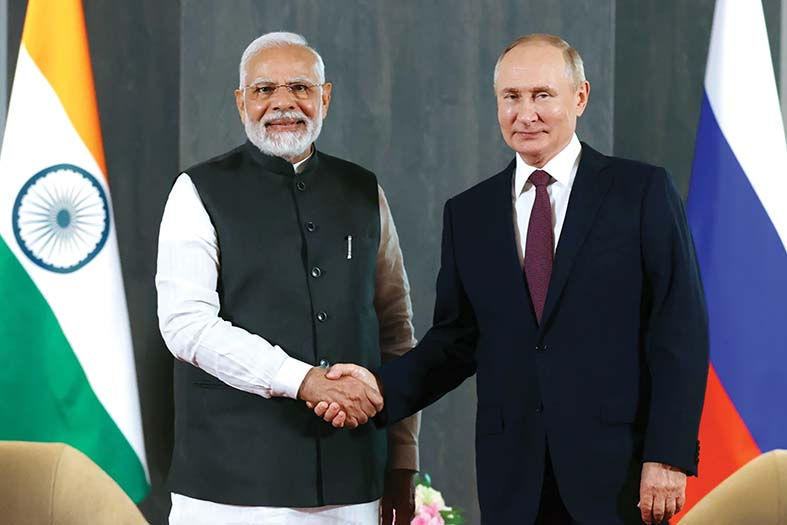Diego Garcia: The Eye of a Geopolitical Storm
- Sumant Vidwans

- Jun 15
- 4 min read
What started in the late 1960s as a Cold War strategy left generations of Chagossians exiled from their homeland — a reality still unaddressed despite a historic sovereignty deal.

On May 22, 2025, the UK and Mauritius signed a deal to end a long-standing colonial dispute over the Chagos Archipelago. Sovereignty transfers to Mauritius, marking a key decolonisation milestone, while military access is preserved. Diego Garcia, hosting a major US-UK base, stays under British control for 99 years, with possible extension.
While officials in Port Louis celebrate and policymakers in London declare a new chapter, the displaced and exiled Chagossian community finds little to celebrate. Their concerns remain sidelined in a geopolitical arrangement with far-reaching implications — not just for the region’s strategic landscape but also for human rights and historical accountability.
In the late 1960s and early 1970s, nearly 2,000 Chagossians were forcibly evicted for a US-UK military base on Diego Garcia. The archipelago was separated from Mauritius in 1965, just before Mauritius gained independence, to maintain UK strategic control amid Cold War tensions.
Mauritius long maintained that the UK’s separation of the Chagos Archipelago was illegal and breached international decolonisation principles. In 2017, the UN General Assembly asked the International Court of Justice to issue an opinion on the legality of the UK’s continued administration of the islands.
In 2019, the ICJ concluded that the UK had violated international law and that decolonisation remained incomplete. A subsequent UNGA resolution reinforced this, calling for the territory’s decolonisation and the return of the islands to Mauritius.
Diego Garcia was established as a forward base to counter the growing Soviet influence in the Indian Ocean. It later became vital to US and UK military operations in Iraq, Afghanistan, and, more recently, maritime missions across the Indo-Pacific. Today, it remains a key hub for surveillance, logistics, and regional security, highlighting its ongoing geopolitical importance.
The 2025 UK–Mauritius Agreement
The May 2025 agreement formally transferred sovereignty of the Chagos Archipelago to Mauritius, though Diego Garcia will remain under British military control for an initial 99-year lease, ensuring uninterrupted joint operations.
The UK will pay Mauritius just over £3 billion (approx. $3.8 billion or Rs 31,500 crore) over the lease period, with annual payments of around £165 million (approx. $210 million or Rs 1,375 crore) in the early years, dropping to £120 million (approx. $150 million or Rs 1,000 crore) later. While financially substantial, critics argue no sum can compensate for the moral and historical debt to displaced Chagossians.
Chagossian Voices and Human Rights Concerns
The agreement’s omission of return or compensation provisions has angered the Chagossian community. They argue it ignores the injustices faced by generations who remain stateless, disenfranchised, and exiled. With no legal path to resettlement or citizenship, many fear it ends any real hope of return. Human rights groups have echoed these concerns, urging the UK and Mauritius to establish a parallel mechanism focused on displaced Chagossians’ rights.
UK Prime Minister Keir Starmer called the agreement a pragmatic compromise that safeguards national security while resolving longstanding legal and diplomatic issues. He emphasised that Diego Garcia remains central to the UK’s Indo-Pacific strategy and the Five Eyes intelligence alliance.
Critics, particularly from the Conservative opposition, accused the government of giving up sovereign territory and burdening taxpayers with a costly, uncertain deal. They also voiced concern over potential Chinese influence via its growing presence in Mauritius.
Mauritius, by contrast, hailed the deal as a milestone in its post-colonial journey. Authorities plan to raise the national flag ceremonially across the archipelago, marking restored territorial integrity. Observers say the deal may boost Mauritius’s standing in regional bodies like the Indian Ocean Rim Association and strengthen ties with India.
Geopolitical Flashpoints
Strategically, the deal enables Western powers to retain uninterrupted access to a key naval outpost in the Indian Ocean. With rising threats to maritime trade from piracy, unrest, and global rivalries, Diego Garcia’s importance has grown. Continued military presence ensures rapid deployment and seamless intelligence sharing in the region.
India welcomed the agreement, seeing the sovereignty transfer as a counter to China’s naval expansion in the Indian Ocean. Closer India–Mauritius ties, through aid, maritime cooperation, and diplomacy, align with India’s Indo-Pacific strategy.
However, concerns remain. Some experts warn that large UK payments may make Mauritius more open to Chinese influence. With Beijing expanding across Indian Ocean ports — from Sri Lanka to East Africa — fears of strategic encroachment are not unfounded.
Australia and other Five Eyes members support continued operations at Diego Garcia, highlighting its role in regional stability, counter-terrorism, and deterrence. They view the deal as a blueprint for balancing decolonisation with defence continuity.
Successful implementation depends on ratification, smooth transition, and effective oversight. The deal may boost Mauritius’s regional role, but unresolved Chagossian grievances could spark fresh legal challenges. Political shifts, especially closer ties with China, may also reshape strategic dynamics. While the agreement offers a short-term balance, its long-term viability remains uncertain.
(The writer is a foreign affairs expert. Views personal.)




Comments